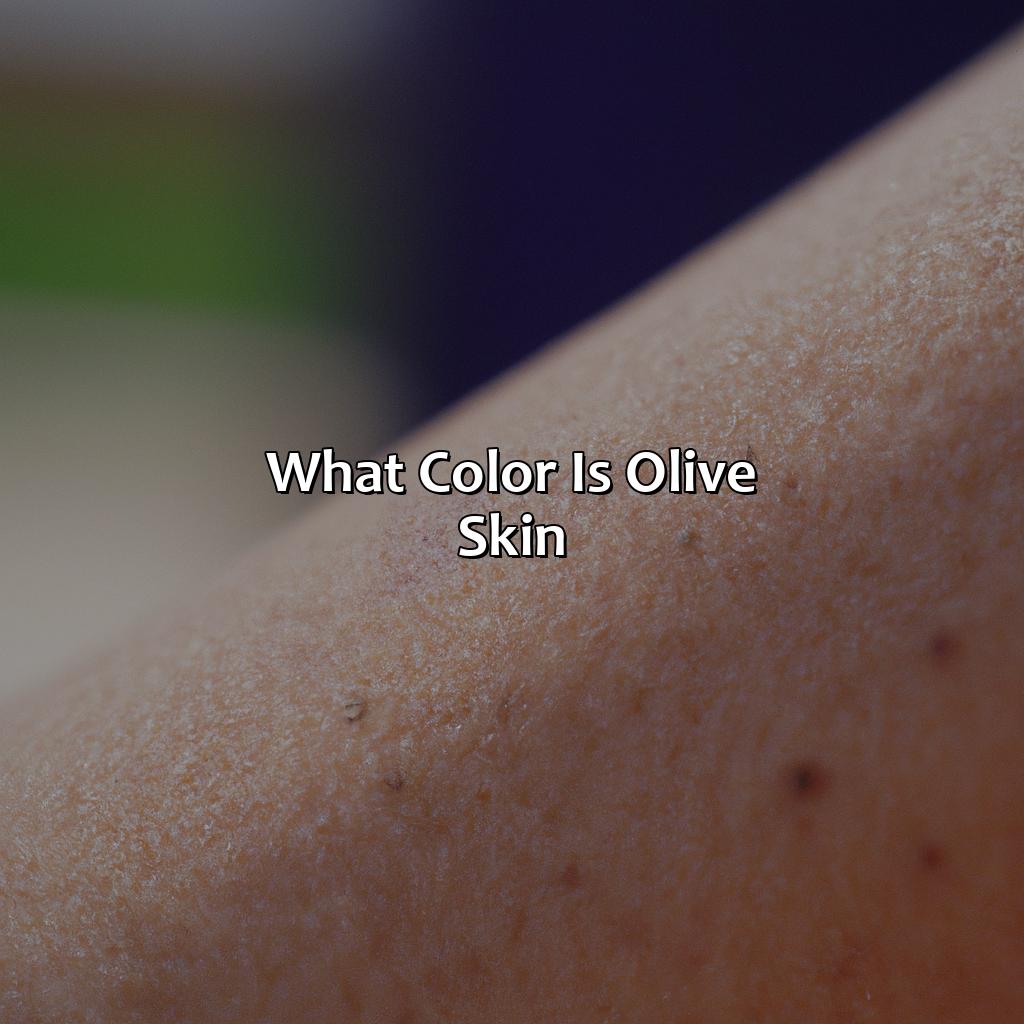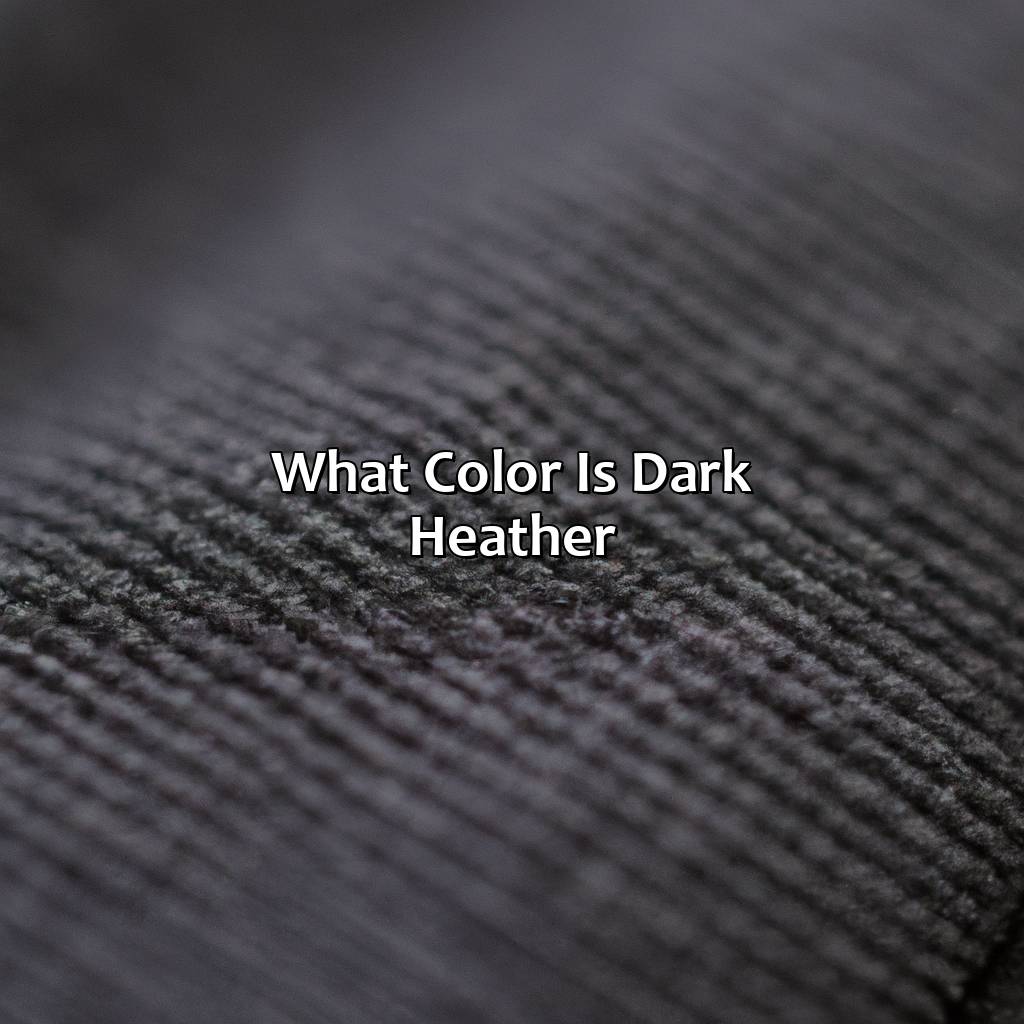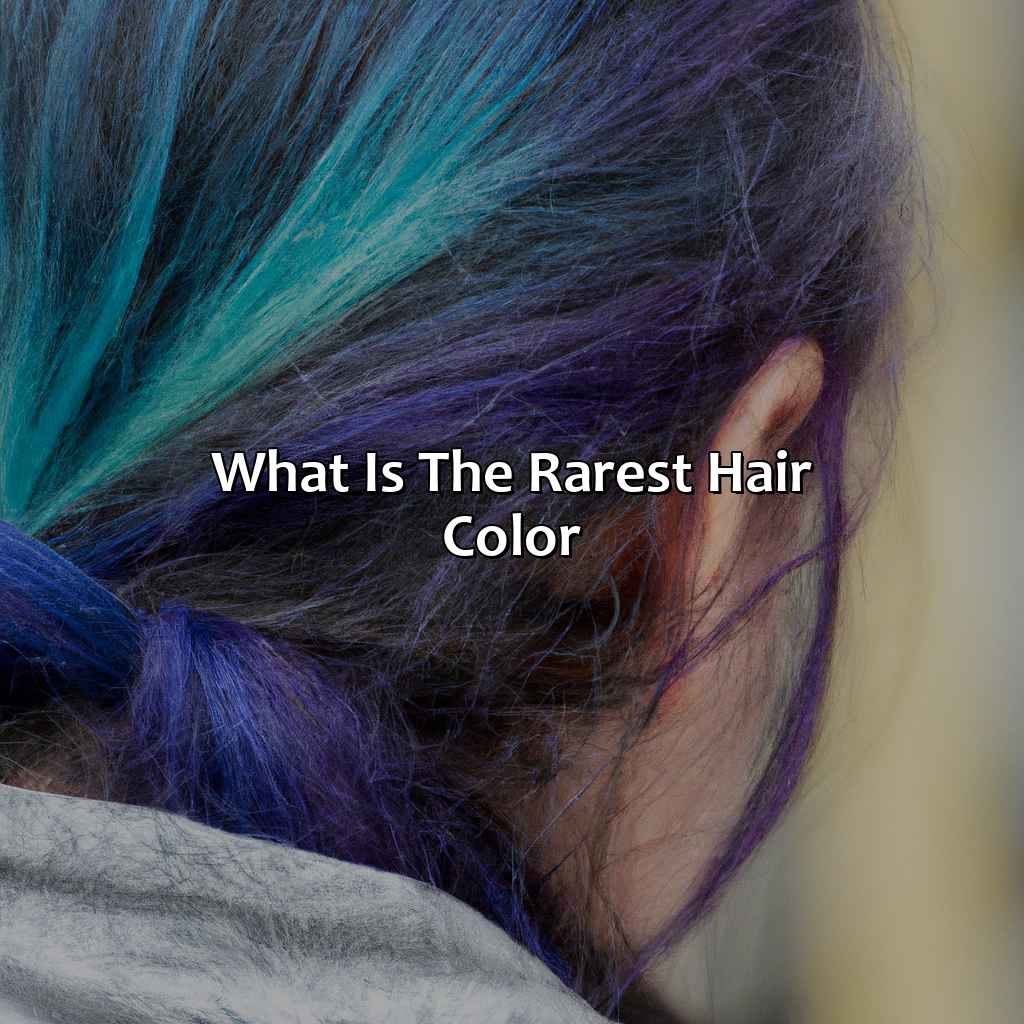Key Takeaway:
- Olive skin color is a skin tone characterized by greenish or yellowish hue, and it usually falls in the medium range of skin tones.
- Olive skin color is most common in people with Mediterranean, Middle Eastern, and South Asian ethnicities. It is caused by a combination of genetic factors and sun exposure.
- The melanin in olive skin provides some natural protection against sun damage, but it can also cause problems like hyperpigmentation, freckles, and dark circles. Identifying your undertones can help you choose complementary colors for clothing and makeup that enhance your skin tone.
Understanding Olive Skin Color
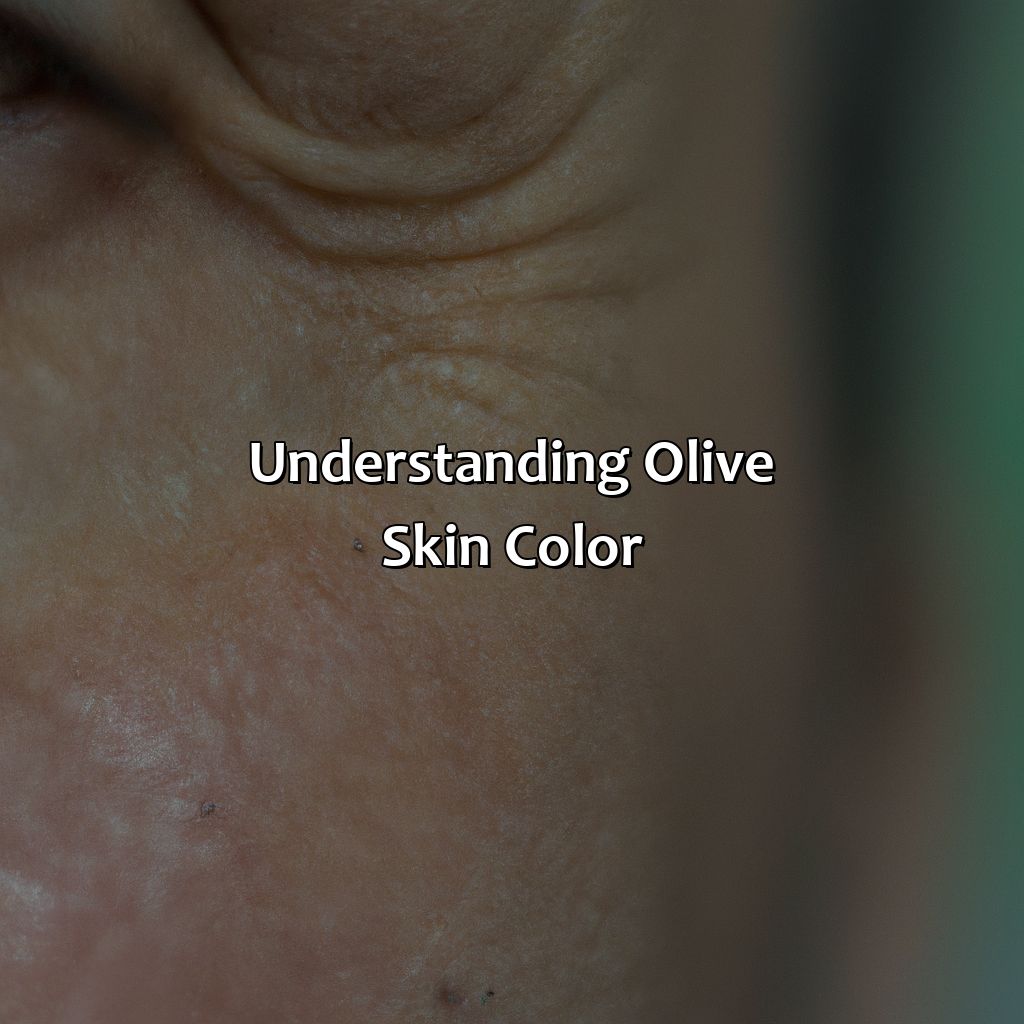
Photo Credits: colorscombo.com by Richard King
Do you want to understand your olive skin colour and tones? To do this, you need to know the definition. It depends on your complexion and ethnicity. Different people have different melanin, dark circles and hyperpigmentation. Explore these sub-sections to know your skin tone. Then you can pick the right makeup colours for you.
Definition of Olive Skin Color
People often have different skin tones that vary based on their ethnicity and other factors. Olive skin is a common complexion characterized by a yellow-green undertone that resembles the color of olives. It is usually found among people of Mediterranean, Middle Eastern, and Latin American descent. This type of skin tone has unique traits that differ from other types, including medium to dark complexion with warm undertones, dry and sensitive texture, and blemishes caused by excess melanin.
The definition of olive skin color involves understanding its unique characteristics and identifying various factors influencing it. Several factors can affect olive skin color, including genetics, sun exposure, and skincare products or cosmetics used regularly. Each factor plays an integral role in determining the ultimate shade of one’s olive complexion.
One defining element of olive skin tone is undertones. The greenish area beneath the surface layer determines which complementary colors work well for dressing up your style while highlighting natural beauty through makeup. You can also use jewelry to complement your olive tone.
When choosing clothing or makeup shades complementary to this kind of complexion, it is best to stick to earthy hues like bronze or gold as they blend nicely with the warm undertones. Avoid anything too bright or vibrant as these tend not to complement this complexion very well.
To keep your olive skin looking healthy and radiant, it is important to take care of it regularly through proper skincare routines by using top-rated products designed specifically for this kind of complexion while prioritizing sun protection practices such as sunscreen application daily – even on cloudy days.
My friend Jessica has an olive-toned complexion from her Middle Eastern heritage; she always looks effortlessly stunning thanks to her mindful regimen and attention to detail when dressing herself up!
Olive skin is a melanin-rich canvas, prone to freckles and hyperpigmentation from sun exposure, but also cursed with the dark circles struggle.
Characteristics of Olive Skin Color
Olive skin color is a unique shade that displays characteristics of high melanin content, giving it a warm yellow-green undertone. This skin tone can be identified by examining the undertones on the surface and observing freckles, hyperpigmentation, and dark circles.
Additionally, olive skin color has an excellent ability to tan without burning due to the increased amount of melanin in the skin. This tone also boasts a natural glow with regular sun exposure, but consistent exposure may lead to premature aging.
It is important to note that olive skin tones can vary in depth from light olive to deep brown despite sharing similar characteristics.
To truly appreciate olive skin color, individuals must understand their undertones and embrace colors that complement their tones for fashion and makeup. By taking care of one’s oily or combination skin with proper skincare including sunscreen protection with at least SPF 30, the individual can enhance this unique tone. Embrace the beauty of olive skin color by understanding its characteristics and learning how to best maintain its allure.
Your olive skin tone may be affected by genetics, sun exposure, and even the skin care products you use, so make sure to protect and pamper it accordingly.
Factors Affecting Olive Skin Color
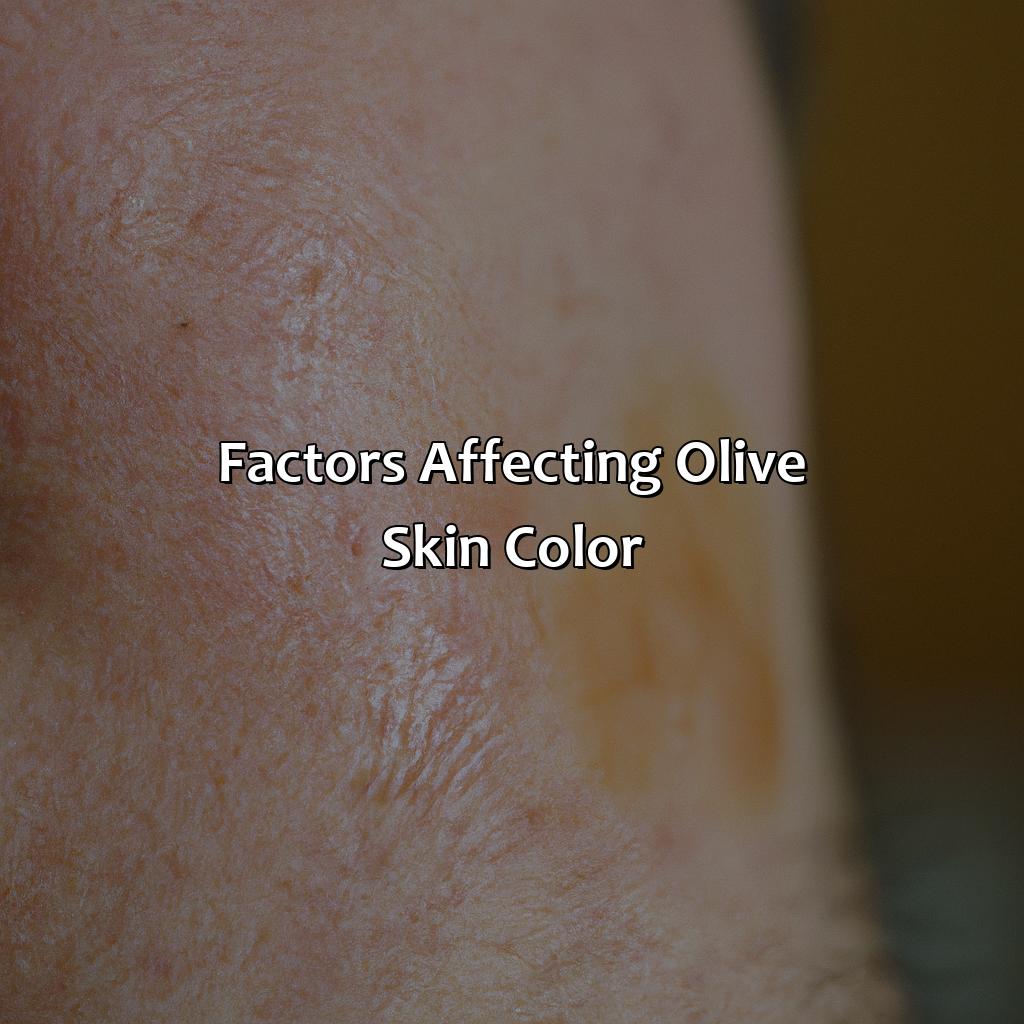
Photo Credits: colorscombo.com by Samuel Clark
Olive skin color can be impacted by genetics, sun exposure, and skin care products. Genetics and ethnicity decide the color. Sun exposure may damage the skin. Skin care products and cosmetics that contain certain ingredients can affect the skin.
We will now look into the factors which influence olive skin color, and briefly review the sections concerning each factor.
Genetics
The olive skin color is heavily influenced by genetics and ethnicity. As melanin production varies among individuals, it is possible to inherit the genes for a specific skin tone. Ethnicity also plays a role as certain races have a higher likelihood of having olive skin tones. People of Mediterranean, Middle Eastern and South Asian descent often show variations in melanin production resulting in olive skin hues.
The inherited genes that impact the amount of melanin produced affects the pigmentation of the skin. Melanocytes in the basal layer of epidermis, under genetic control, produce the two types of melanin: eumelanin (black-brown) and pheomelanin (red-yellow). This genetic predisposition is usually present since birth contributing to both natural hair and eye colors as well.
Although genetics strongly influence olive skin color, various environmental factors can affect it as well. Individuals exposed to excessive sun damage or UV radiation experience an increase in pigment due to stimulated production of melanin. Use of certain skincare products or cosmetics can cause inflammation leading to unwanted changes in pigmentation.
It has been discovered through studies that Neanderthals had fairer Skin compared to ancient humans due to differences in their genomes. The interbreeding between early modern humans with Neanderthal populations led most non-African people today inheriting some sections of that genome which reflects distinct biological traits such as our skin color variation.
Get your daily dose of UV rays for a sun-kissed olive skin tone, just don’t forget the sunscreen!
Sun Exposure
Increased exposure to UV rays due to sun exposure can lead to a number of issues related to the olive skin tone. Prolonged overexposure can cause hyperpigmentation, wrinkles, and other unsightly blemishes on the skin’s surface. To mitigate these effects, it is important to avoid direct sunlight during peak hours (10 a.m. to 4 p.m.) when the sun’s rays are at their strongest. Additionally, always apply sunscreen with an SPF of at least 30 whenever you plan on spending time outside. This will help shield your olive skin from harmful UV radiation and maintain its natural radiance and beauty.
It is recommended that individuals with olive skin should avoid extended exposure to the sun as this may lead to tanning or even burning of the skin surface which may promote premature aging or even worst cancer-causing agents. Therefore, protective measures such as wide-brimmed hats and sun-blocking clothing may also be used in conjunction with proper skincare techniques that include moisturizing and hydrating treatments.
To ensure that your olive skin remains healthy and glowing for years to come, it is critical to be responsible when it comes to sun safety practices. Incorporating these actions into your daily routine will provide you with numerous benefits in terms of both aesthetic appeal and long-term health outcomes for your olive skin tone.
Using skin care products and cosmetics may not change your olive skin color, but they can definitely make it look glowing and flawless.
Skin Care Products and Cosmetics
Skin Care Products and Cosmetic Formulations
The cosmetics and skin care products industry is rapidly expanding, providing varying solutions to different skin types. Olive skin requires special attention when it comes to skincare routines to ensure optimal health and beauty. Many commercial cosmetics are not suitable for olive skin due to their ingredients that contain harsh chemicals, synthetic formulas, or fragrances. Hence, selecting appropriate formulations with natural or organic ingredients proves beneficial for olive skin care.
It’s important to avoid harsh chemicals such as parabens, phthalates, sulfates and opt for products enriched with good quality antioxidants such as vitamin E and C, hyaluronic acid, glycolic acid etc.
Unlock the mystery of your olive skin tone by decoding the subtle undertones that bring out your natural beauty, even with beige undertones and hazel eyes.
Identifying Your Olive Skin Tone
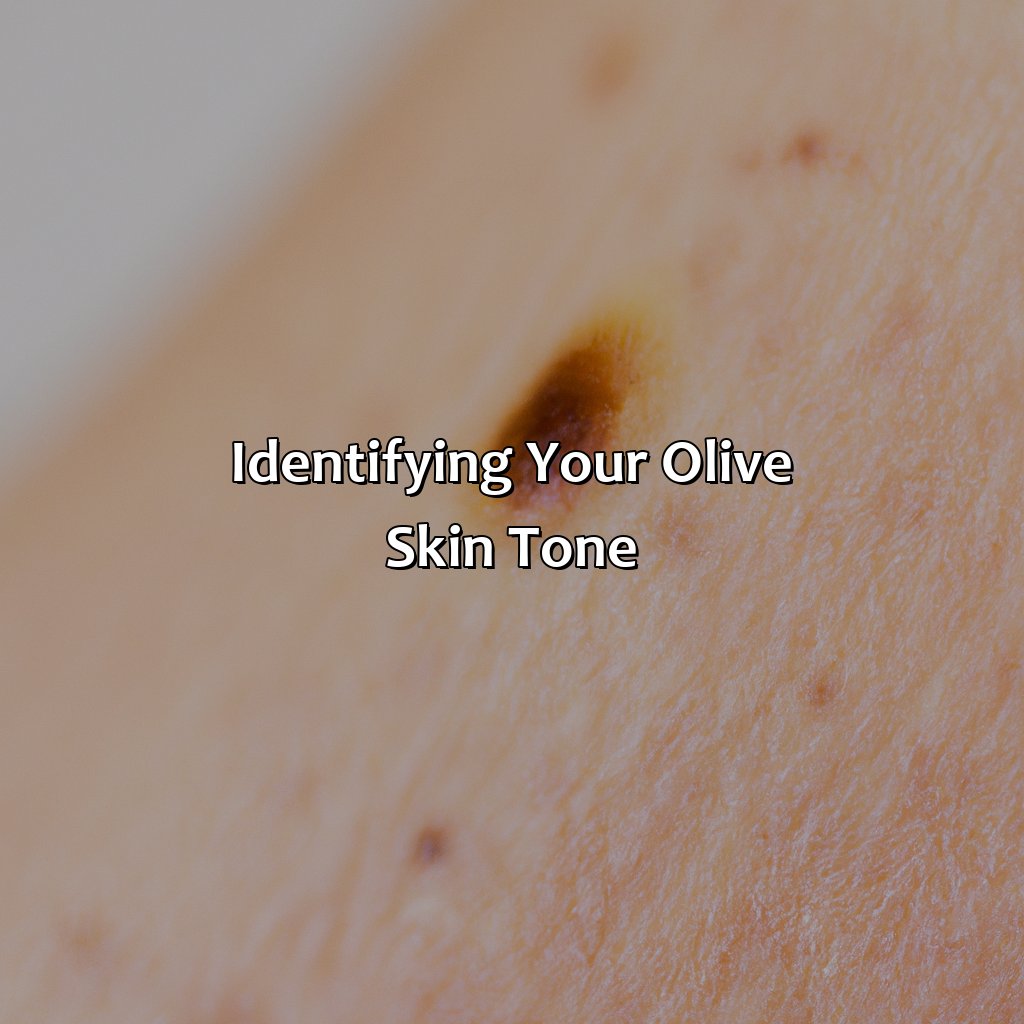
Photo Credits: colorscombo.com by Douglas Johnson
Unlock the secrets of identifying your olive skin tone and undertones! Is it warm, cool, or neutral? Plus, beige and hazel eyes? You can find out. Discover how jewelry like gold or silver can help you define your color effortlessly. Explore the nuances of your olive skin. Get ready to identify those undertones!
Undertones in Olive Skin
The undertones in olive skin are subtle but distinct, and understanding them is crucial for finding complementary colors and makeup shades. Olive skin can have warm, cool, or neutral undertones, and identifying them is essential for creating a harmonious look. Warm undertones have golden or yellow tones, while cool undertones have pink or blue hues. Neutral undertones have a mix of warm and cool shades. While these differences may seem minor, they can make a big difference in how certain colors or shades look on your skin.
When determining your olive skin’s undertone, it’s best to start by looking at your veins. If they appear greenish in color, you likely have warm undertones. If they appear blue or purple, you probably have cooler undertones. If you can’t tell if your veins are more greenish or bluish-purple, then your olive skin tone is most likely neutral.
Another way to determine the undertone in olive skin is by using a piece of gold and silver jewelry against the skin to see which looks better. Generally, if gold jewelry looks best with your complexion then you likely have warmer undertone whereas if silver looks better then cooler ones.
Pro Tip: Don’t be afraid to experiment with different colors to find out what works best for your particular olive skin tone. Find your perfect metal match and uncover your Olive skin tone with jewelry in gold or silver.
Using Jewelry to Identify Olive Skin Tone
Jewelry is an excellent tool for determining one’s olive skin tone. Accessories like gold and silver earrings can reflect light on the skin, showcasing its undertones. Taking note of how your skin looks when paired with certain jewelry is key to identifying your olive skin tone. Additionally, wearing various types of jewelry can highlight which metals complement your skin. This process is especially helpful if you’re unsure which clothing pieces and makeup shades work best with your complexion.
Furthermore, pairing gold jewelry with olive-colored clothing will add warmth to the skin’s undertone, while silver cools it down. Jewelry itself doesn’t have to be overly bold or flashy either – simple pieces can do the trick and maintain an understated look.
In addition, understanding the tones that make up your jewelry can help determine whether it complements or clashes with your olive skin tone. For example, a warm gold-tone piece is likely more versatile than one with cooler undertones. Colorful gemstones also reflect differently on olive-toned skin; warm tones like orange or yellow can bring out warmth in the complexion.
A true story of a friend who discovered her true olive skin tone was after experimenting with silver and gold jewelry colors that brought out different aspects of her complexion. Prior to this discovery, she struggled to find flattering clothing colors and makeup shades, but now confidently wears more vibrant hues thanks to her understanding of her unique undertones and preferred metal tones.
Complement your olive skin with these clothing colors and makeup shades that’ll have you glowing like the goddess you are!
Complementary Colors for Olive Skin
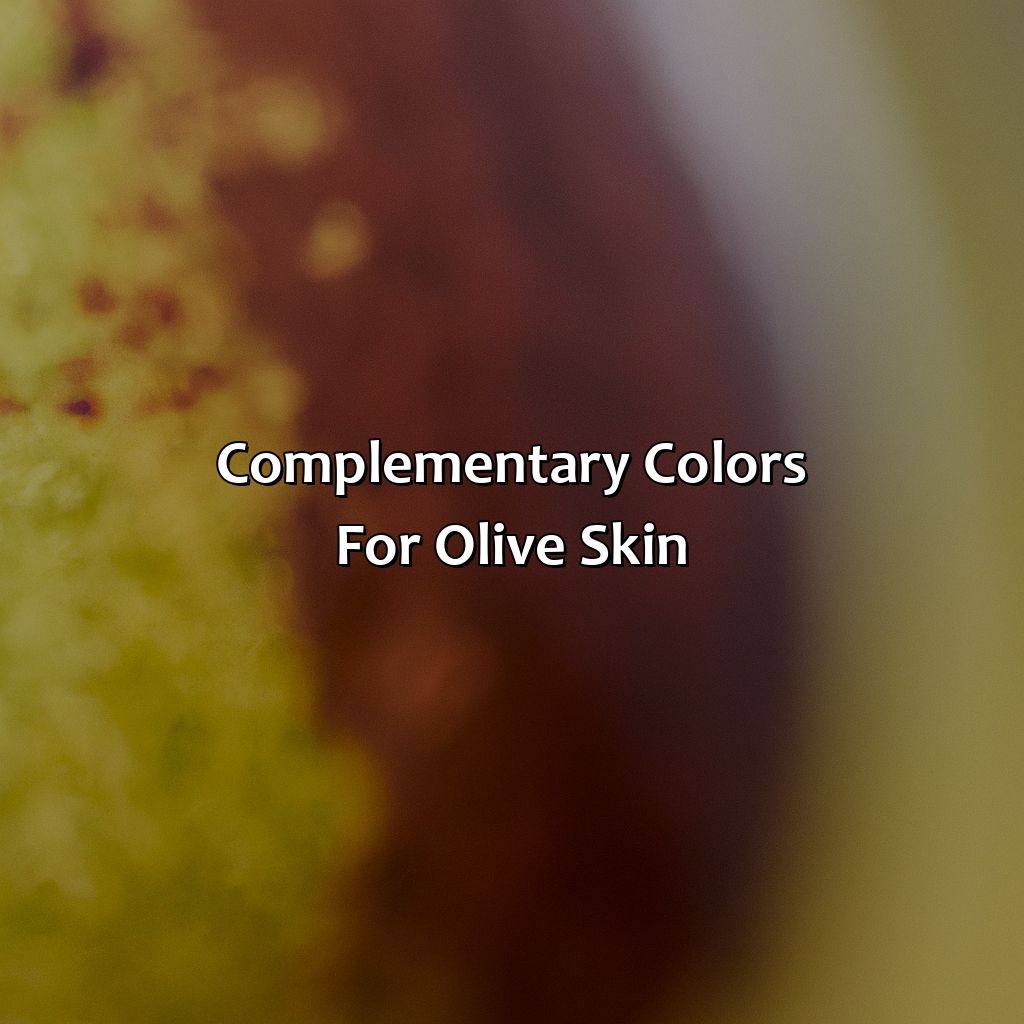
Photo Credits: colorscombo.com by Robert Jackson
For olive skin, choosing the right colors is key. Are your tones rosy, golden, bronze, or brown? Knowing this will help select complementary clothing and makeup. Look into the sub-sections to find out which shades of clothing match your skin tone. Or to make it pop – try almond, honey, copper, auburn, mahogany, chestnut, or caramel makeup shades.
Clothing Colors for Olive Skin Tone
Clothing Colors for Olive Skin Tone:
Finding the right clothing colors for olive skin tone is crucial in portraying a coordinated and enchanting look. Here are the three points that one needs to consider while choosing the best hues:
- – Rosy Tones: Opt for colors that have pinkish or reddish tones, such as maroon, burgundy, and blush pink. These hues add vibrancy to the olive complexion.
- – Golden Shades: Colors with yellow or gold undertones, such as mustard yellow, ochre, and honey brown look stunning on olive skin. They impart warmth and luminosity to the skin tone.
- – Bronze Hues: Olive-skinned individuals can also rock rich bronze shades such as caramel, rust, and copper. These earthy tones complement olive skin and bring out its natural radiance.
When it comes to selecting appropriate clothing colors for an olive skin tone, other considerations include fabric texture and color intensity.
For example, outfits made from textured fabrics like tweed or corduroy provide contrast against the smooth surface of olive skin. One can also experiment with intense jewel-toned hues to bring out the olive complexion further.
By keeping these tips in mind when selecting clothing colors for their wardrobe, people with an olive skin tone can create looks that flatter them while feeling confident in their fashion choices. Get ready to slay with makeup shades like almond, honey, copper, auburn, mahogany, chestnut, and caramel that perfectly complement your stunning olive skin tone.
Makeup Shades for Olive Skin
Makeup Complements for Olive Skin Tone
Give your olive skin a flawless radiant look with the right makeup shades. Experiment with various warm colors that bring out the natural beauty of your skin tone.
- Consider peachy or coral blush to enhance cheekbones.
- For eye shades, try almond, honey, and copper hues that blend well with your complexion.
- Lipstick in auburn, mahogany, chestnut, or caramel will provide a striking contrast to your olive skin.
Knowing what shades work best for you can make all the difference in achieving an effortless complexion. Create unique looks using these complementary colors for your next event or everyday wear.
Don’t miss out on how stunning makeup can make you look and feel. Flaunt your olive glow with a killer skin care routine, sun protection, and makeup tips.
How to Enhance Olive Skin Tone
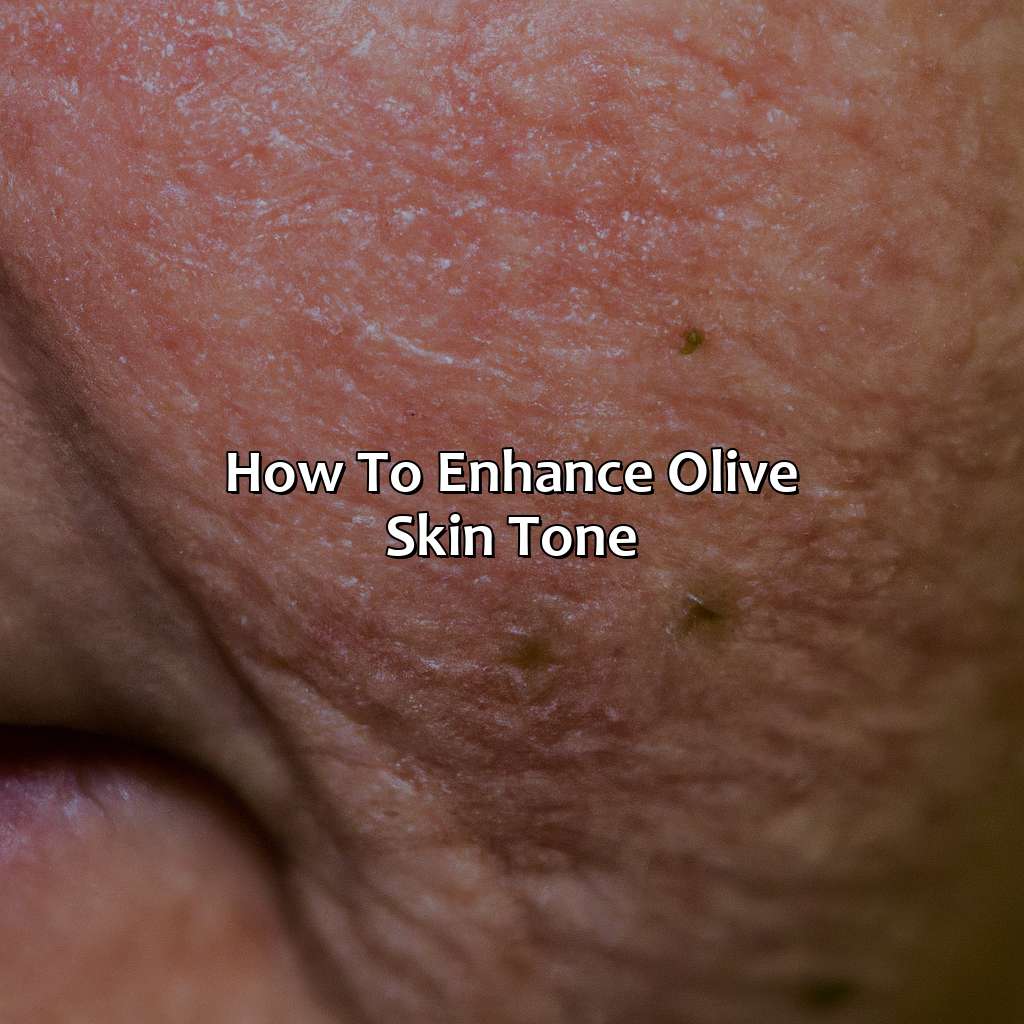
Photo Credits: colorscombo.com by Jeremy Rodriguez
Get glowing with an olive complexion! Dive into the realm of skin care. Discover a daily routine featuring natural ingredients that’ll keep your skin looking its best. Understand sun protection techniques to avoid skin damage. Plus, try makeup tricks to complement your olive skin like a smokey eye or nude lips. Enhance your olive tone today!
Skin Care Routine for Olive Skin
Maintaining healthy skin is essential, especially for people with olive skin. To keep your skin well-nourished and glowing, following a proper skin care routine is crucial. Here’s what you need to know about taking care of olive skin using natural ingredients.
- Start with Cleansing:
Cleanse your face twice a day with a gentle cleanser that doesn’t strip away your natural oils, leaving your skin dry and dehydrated. - Consider Exfoliation:
Exfoliating once a week helps in removing dead cells that make the skin appear dull. Be gentle while exfoliating as harsh scrubbing can damage your delicate skin. - Use Toner:
Using a toner post-cleansing helps in soothing and balancing the pH levels, making it easier for the moisturizer to absorb. - Moisturize, Moisturize, & Moisturize!
Hydrate your skin daily using an oil-free moisturizer suitable for oily or combination skin type. Opt for products that contain hyaluronic acid and glycerin as they lock-in moisture without clogging the pores. - Sun Protection:
Use sunscreen with SPF 30 or higher daily to avoid sun damage like wrinkles, fine lines, and dark spots. - Overnight Care:
Before sleeping apply an overnight cream rich in antioxidants like vitamin C or E to rejuvenate damaged cells efficiently.
It’s recommended to use natural ingredients like honey, coconut oil, oatmeal mask, green tea extract instead of harsh chemicals on olive skin as they are mild yet effective.
Olive Skin Care has found its mention from ancient history when Egyptians used Olive Oil for skincare purposes voluntarily.
Don’t let the sun ruin your olive complexion, protect it like you would your favorite crop with sunscreen, hats, and protective clothing.
Sun Protection for Olive Skin
Protect Your Olive Skin from Sun Damage
Sun damage can cause serious harm to the skin, especially those with olive skin tone. To prevent damaging effects of sun exposure, it’s important to incorporate sun protection in your daily routine. This includes applying sunscreen frequently and wearing protective clothing like hats and long sleeves while outdoors.
Using a high-quality sunscreen with a minimum SPF of 30 is highly recommended for olive skin as it reduces the risk of sunburns and skin cancer. Additionally, ensuring that the product you use is broad-spectrum protects against both UVA and UVB rays. To keep your skin further protected when exposed to the sun, put on a hat or headscarf, alongside clothing that covers your arms and legs.
For better results, apply sunscreen at least 20 minutes before leaving the house and reapply every few hours, especially during peak sun hours. Alongside lookouts like trees, umbrellas or shaded areas are good options for seeking refuge from direct sunlight periodically throughout the day.
Wearing protective gear such as sunglasses can also help shield vulnerable areas around your eyes from harmful UV-related eye diseases. Be wise about when you venture out – try to avoid exposure between mid-morning to late afternoon hours when sunlight is quite harsh and intense.
Don’t just wish for healthy-looking olive-toned skin; protect it proactively by avoiding risky activities such as tanning beds or excessive tanning without a proper sun protection regimen. Don’t miss an opportunity to show off your beautiful natural complexion because of improper care!
Unleash your inner goddess with these makeup tips for olive skin, including the perfect smokey eye and subtle nude lips.
Makeup Tips for Olive Skin
Applying makeup that complements olive skin is all about enhancing its natural radiance and warm undertones. Experiment with different shades and textures to find the right balance that suits your preferences and occasions.
For a subtle everyday look, opt for neutral or nude lips and soft earthy eyeshadows. To add some drama, you can create a smokey eye by using deeper shades of brown, gold or purple on the outer corners of your lids. Balancing your eye makeup with light blush and bronzer can add warmth to your face without overpowering the olive tone.
For special events or evening looks, you can play around with bolder lip colors like deep reds or plums that complement the golden undertones in the skin. Highlighting your cheekbones with shimmering highlighter can also make them stand out against the olive background. When choosing foundation or concealer, consider matching the yellow tones in your skin instead of going too pale or pink-based.
To explore more looks and products that cater to olive skin tones, it helps to select brands that specialize in creating inclusive ranges of makeup particularly for this segment. You can also experiment with organic or natural products that contain nourishing ingredients like olive oil, argan oil or chamomile extract, which are beneficial for maintaining healthy-looking skin.
Don’t miss out on exploring the possibilities of enhancing your olive skin tone with well-chosen makeup tips! Remember to find what suits you best and enjoy experimenting with different looks and techniques until you find your signature style.
Five Facts About Olive Skin:
- ✅ Olive skin has a neutral undertone that can range from yellow-green to moderate brown. (Source: Byrdie)
- ✅ It is common in populations from the Mediterranean, Middle East, and South Asia. (Source: Healthline)
- ✅ People with olive skin tend to tan easily, but may also burn if exposed to strong sun. (Source: Dermstore)
- ✅ Olive skin can be prone to hyperpigmentation and discoloration due to sun exposure. (Source: Harper’s Bazaar)
- ✅ Colors that complement olive skin tones include earthy hues, muted shades, jewel tones, and metallics. (Source: StyleCraze)
FAQs about What Color Is Olive Skin
What color is olive skin?
Olive skin is a varying shade of light to medium brown with green or yellow undertones.
What ethnicity typically has olive skin?
People of Mediterranean, Middle Eastern, and South Asian descent typically have olive skin.
Can someone with fair skin have olive undertones?
Yes, it’s possible for someone with fair skin to have olive undertones. This can make their skin appear slightly greenish or yellowish in certain lighting.
How can I determine if I have olive skin?
If your skin appears green or yellow under certain lighting and you tend to tan easily, rather than burn, you may have olive skin.
What colors look best on olive skin?
Earth tones, jewel tones, and rich shades of purple and red look great on olive skin. Avoid colors with cool undertones like pastels and icy shades.
Can olive skin be prone to sun damage?
Yes, even though olive skin has more natural protection against the sun due to its higher melanin content, it can still be prone to sun damage and skin cancer if not properly protected.
